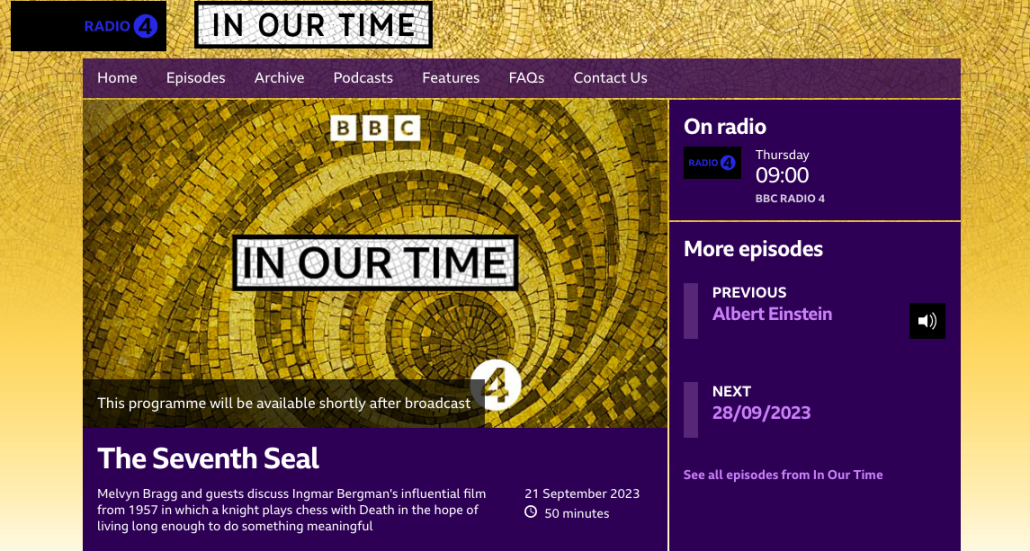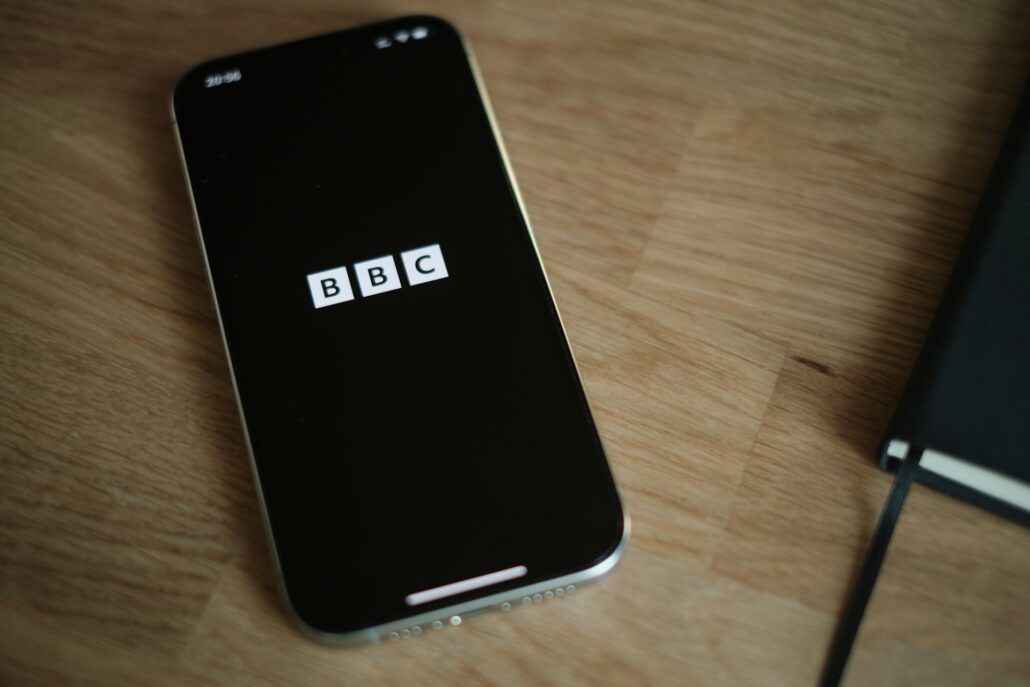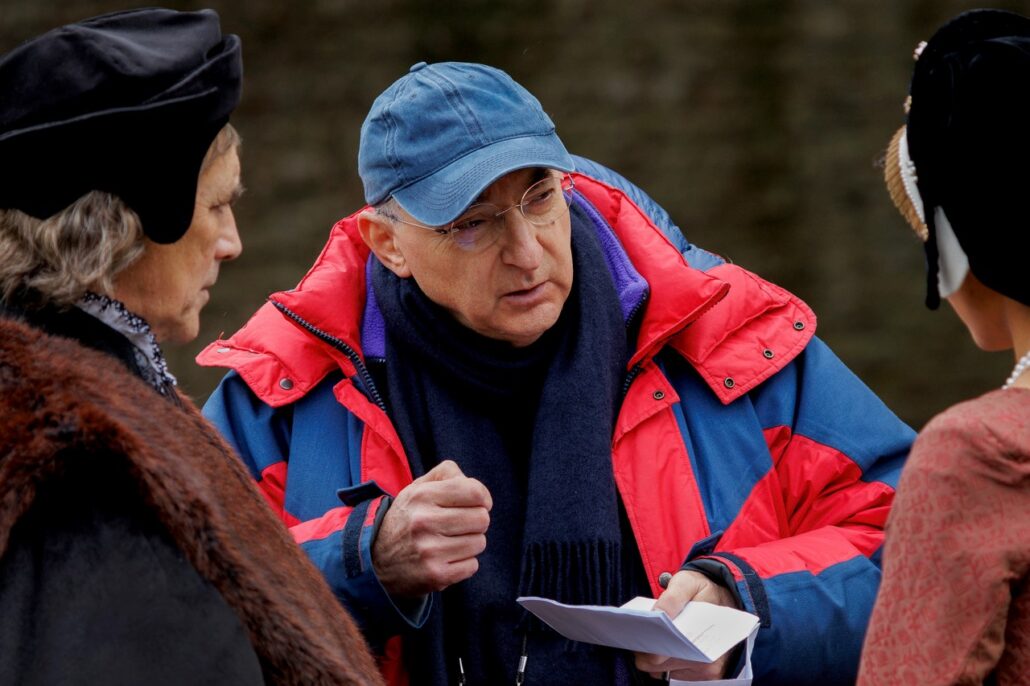
Blogging about the Alf Layla wa Layla – or the Thousand and One Nights – for Shakespeare’s Globe Theatre, Dr Shazia Jagot refers to how the intimacy of the story-telling contract between Scheherazade and her tyrannical husband Shahryar is forged.
‘(Scheherazade) turned to the king and said, ‘May I tell a story?’
‘Yes’ he said.
And she said, ‘Listen’.
It’s Jagot’s suggestion that Scheherazade’s call to ‘Listen’ is not just an appeal to the King, but to we “listeners of different kinds” who through the act of listening become active participants in the story-telling process.
When I read this, it made me think of In Our Time, which has now been running on BBC Radio 4 for more than 25 years. This week IOT will broadcast its one thousandth episode and, over that time, like Shahryar, I’ve often found myself rapt by what I was hearing. I’m obviously not alone. IOT was the first ever BBC podcast and remains its most downloaded ever weekly show.
On paper IOT does not look like it should be the cult success it has been. The format is unapologetically high-brow: every week the veteran broadcaster Melvyn Bragg sits in a studio with three academics to talk – just talk – for 45 minutes about one subject. There’s no showbiz, no jingles or vox pops. No illustrated audio packages or snappy soundbites. Instead listeners get 45 minutes of focussed investigation featuring three academics unashamedly sharing their expertise and enthusiasm for one particular subject while Bragg, like Scheherazade, leads the way. The subjects covered are eclectic, spanning the ages from the prehistoric to contemporary times and making links between culture, history, philosophy, science and, yes, religion.
It was Bragg’s dedication, through programmes like IOT, to “putting religion at the heart of human experience and exploring it in such a way that it has enriched the public discourse” that prompted Sandford St Martin trustees to give him a special Award in 2013.
Like them, I believe religion or belief has been the focus of some of the best episodes of IOT over the years. Recent editions that have stayed with me explored the Dead Sea Scrolls (including the role of a lonely goatherd) and the philosopher Elizabeth Anscombe (who was just about allowed into Wittgenstein’s inner circle despite the handicap of her gender). IOT is a celebration of knowledge and of the spirit of inquiry – a free audio university course for the curious masses and the hungry-to-learn. When my daughter was doing her A levels both her English and History teachers liked to refer their classes to particular episodes of IOT.
The quickest dip into the archive for something to listen to now, reminds me that there are so many more that I should either listen to again or for the first time. What will it be? Maybe the episode dedicated to Hildegard of Bingen, 12thcentury nun, scholar and composer of divine music? Or a deep dive into Ancient Mesopotamia via the Epic of Gilgamesh? Or perhaps it’d be a good time to re-consider of the origins and impact of the split between Sunni and Shi’ite Muslims?
Upon reflection, given the occasion and in welcome expectation of next week’s 1001st programme, I think a fitting commemoration will be to re-listen to an episode from 2007. It features the writer Marina Warner, among others, discussing the myths, tales and legends of the Arabian Nights.
Congratulations ‘In Our Time’! Looking forward to one thousand episodes more!







Leave a Reply